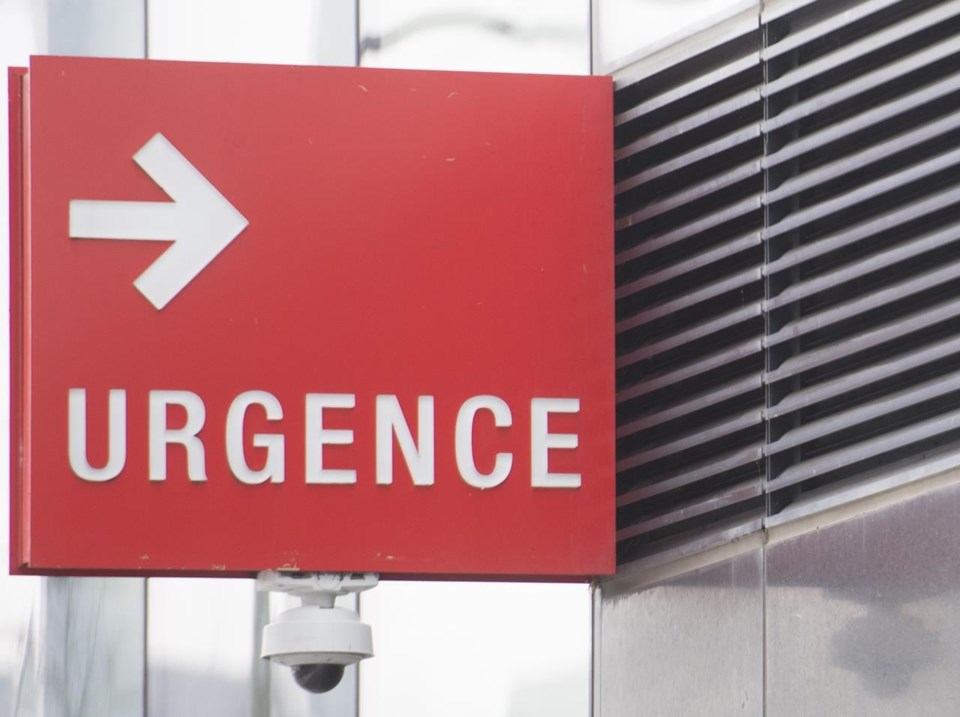MONTREAL — Ahead of the first holiday season in two years with no restrictions on private gatherings, Quebec's public health director encouraged people to use common sense and avoid parties if they feel sick.
Dr. Luc Boileau told reporters in Quebec City that he expects the number of COVID-19 cases in Quebec hospitals to rise as a result of holiday gatherings. Â
"We expect the COVID situation to get worse than it is right now," he said. "It's obvious that there will be more contacts between people during the next couple of weeks."
The holiday period is particularly risky for the spread of respiratory viruses, Boileau said, because family gatherings often involve multiple generations, including older people and very young children, who are at higher risk of serious illness.
He said he hopes people will be "really careful" and called on Quebecers to avoid gatherings for 10 days if they have flu-like symptoms — even if those symptoms are mild.
Healthy people, Boileau said, who have previously been exposed to COVID-19 or influenza may have few symptoms but could spread the virus to someone more vulnerable. He also called on people not to pass babies around at holiday parties and kiss them like "the Stanley Cup."
"Please, it's really important for them, the babies," he said.Â
Quebec hospitals have been buffeted by a trio of respiratory viruses in recent weeks — COVID-19, respiratory syncytial virus and influenza — and the situation remains "very difficult in the emergency rooms," Boileau said.Â
On Wednesday afternoon, the occupancy rate in Quebec emergency rooms averaged 133 per cent, the sixth time in nine days that average occupancy rates were above 130 per cent.
Boileau said the number of cases of RSV, a disease that can cause serious illness in young children, is declining.
"It's good news for pediatric units — that's not to say things are going well for our pediatric hospitals. They continue to be crowded; it's still demanding for the teams, but at least that virus is on a more reassuring trend," he said.Â
However, the province is in the midst of an early flu season, and while it's possible that the peak of the outbreak has been reached, the number of cases "remains very high," Boileau said. Â Â
Earlier Wednesday, the Health Department said 2,081 people were in hospital with COVID-19, an increase of 60 from the day before. It's the highest number of COVID-19 hospitalizations in the province since Oct. 19.Â
The news conference Wednesday took place almost a year after Quebec Premier François Legault announced a series of new restrictions aimed at slowing the spread of the Omicron variant of COVID-19 — including a ban on work parties.
On Dec. 16, 2021, when that announcement was made, fewer than 400 people were in hospital with the disease.Â
But Boileau said the situation is different this year: people have a high level of protection from the virus because of vaccination and previous infection, and most patients currently in hospital tested positive for COVID-19 after they were admitted for other reasons.Â
The Health Department said 698 COVID-19 patients — about 33 per cent — were admitted because of the disease.
"It's not the same picture, so we're not as worried as we were last year," Boileau said, adding that he does not plan to recommend the province reintroduce any sort of coercive measures.Â
This report by The Canadian Press was first published Dec. 14, 2022.
Jacob Serebrin, The Canadian Press



